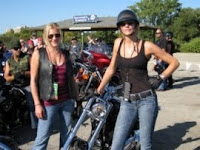I have been reading on research methodologies that are potentially relevant for researching web series. Unfortunately, due to the care required for doing valid research, and then for the cross checking of peer reviewed publications, such research is always behind the eight-ball when it comes to developments in new technologies. What follows is a review of the book, and will probably only be of interest to a very select group of web series fans.
Scollon and Scollon see the contributions to change, coming as much from the questions they raise for people active in the field being researched. They don’t think the researcher can make hard and fast conclusions of the way forward, but can throw some in-depth light on the processes involved in the activities being studied.
This book provides a detailed analysis of Scollon & Scollon’s own research into education of native Alaskans, comparing traditional courses and online, distance learning. It has an extensive fieldguide in the appendix, which looks pretty useful.
selected scenes (locations, or sites of interaction – this is the main focus of any nexus analysis);
They also provide guidance in how to expand the range of discourses from the main area of study to the wider society – so in the case of lesbian-themed series, it would require looking at the kinds of discourses of sexuality in mainstream TV, in various web series and then in the wider society.
The weakness of this method seems to me to be:
1) Research selections could be a bit random: because online networks are so extensive, it requires the researcher to make choices about what is relevant. Although, Scollon and Scollon also recommend that the main participants are asked for their views on what is relevant to the research. Consequently, there should be flexibility in shifting the focus of the research, based on input from the main participants in the study.
2) This research was done in educational settings and at the turn of the century. It consists of relatively small networks, and since then the multiplicity of media and social networks now available online make everything so much more complex.
3) Scollon and Scollon focus on educational practices and discourses of ‘race’ ethnicity, and my interest is more in identities, especially gender and sexual identities.
Scollon and Scollon see the contributions to change, coming as much from the questions they raise for people active in the field being researched. They don’t think the researcher can make hard and fast conclusions of the way forward, but can throw some in-depth light on the processes involved in the activities being studied.
This book provides a detailed analysis of Scollon & Scollon’s own research into education of native Alaskans, comparing traditional courses and online, distance learning. It has an extensive fieldguide in the appendix, which looks pretty useful.
When it comes to researching interactive web series today, some of the major problems are the shifting and continually changing nature of the Internet and the complex networks that operate through it.
Nexus Analysis provides a way to manage, potentially unmanageable material around three axes:
Nexus Analysis provides a way to manage, potentially unmanageable material around three axes:
selected scenes (locations, or sites of interaction – this is the main focus of any nexus analysis);
the interaction order (the structure, format and organisation of interaction eg in pairs, groups; informal rules developed by participants);
body history of participants (i.e. how do past experiences of individuals, and the discourses that they have engaged, with influence the ways they interact in the selected scenes).
They also provide guidance in how to expand the range of discourses from the main area of study to the wider society – so in the case of lesbian-themed series, it would require looking at the kinds of discourses of sexuality in mainstream TV, in various web series and then in the wider society.
In order to do nexus analysis, it’s recommended that a mixture of methods is used as a kind of cross check: this would include, observation, participant observation (of interactions and the media involved in, or related to the interactions), interviews, surveys, focus groups.
The weakness of this method seems to me to be:
1) Research selections could be a bit random: because online networks are so extensive, it requires the researcher to make choices about what is relevant. Although, Scollon and Scollon also recommend that the main participants are asked for their views on what is relevant to the research. Consequently, there should be flexibility in shifting the focus of the research, based on input from the main participants in the study.
2) This research was done in educational settings and at the turn of the century. It consists of relatively small networks, and since then the multiplicity of media and social networks now available online make everything so much more complex.
3) Scollon and Scollon focus on educational practices and discourses of ‘race’ ethnicity, and my interest is more in identities, especially gender and sexual identities.












